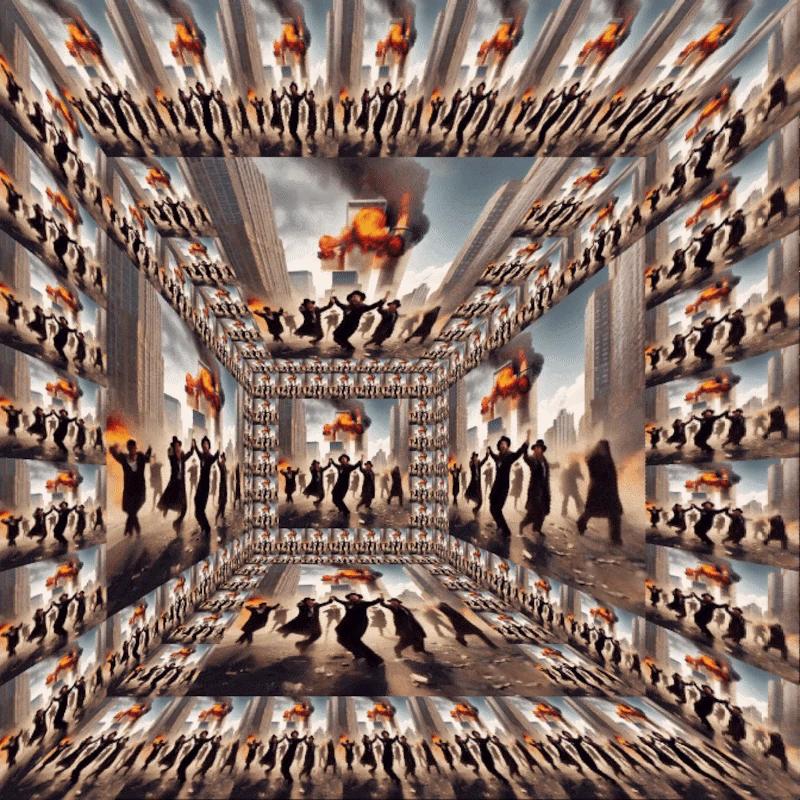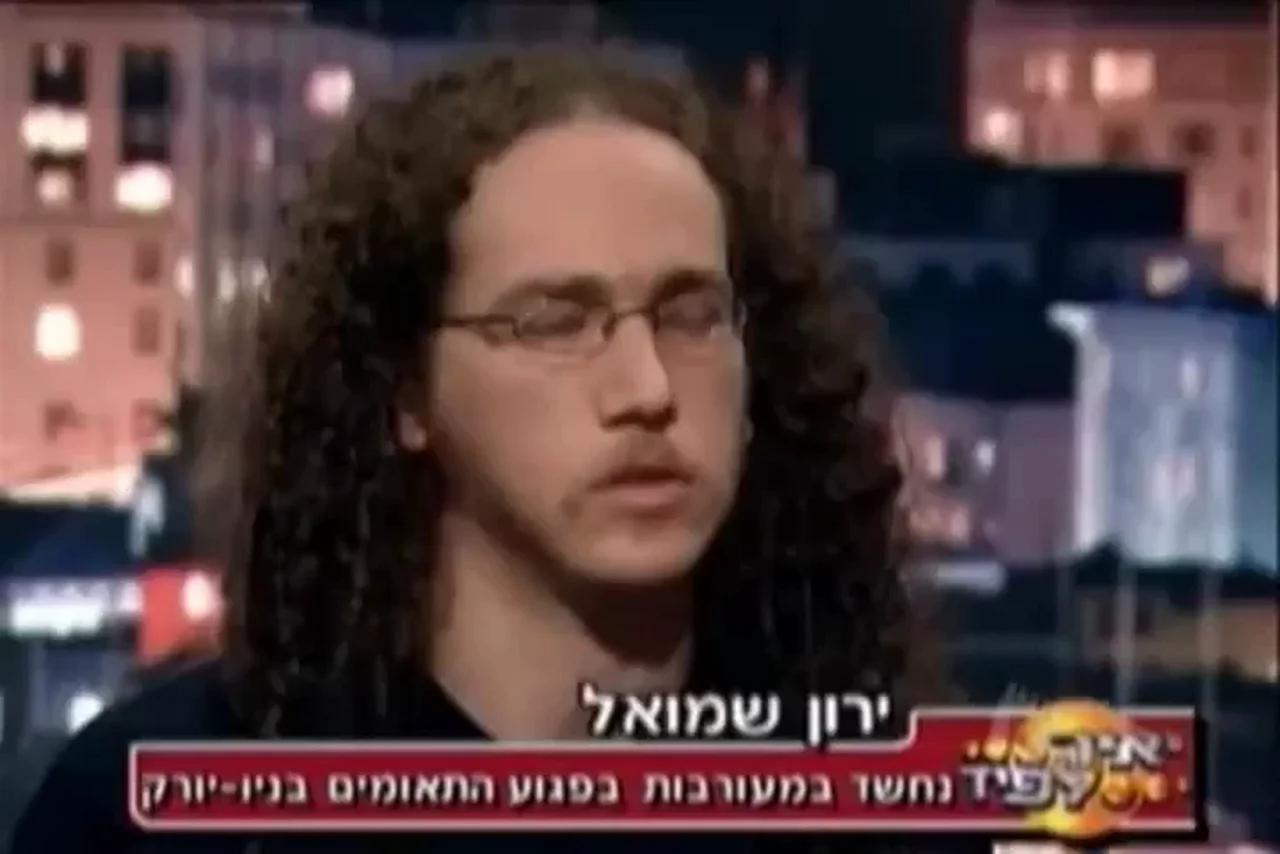The "Dancing Israelis" is a term that has sparked considerable debate and intrigue over the years. The phrase first emerged in the aftermath of the tragic events of September 11, 2001, when five individuals were reportedly seen celebrating and filming the destruction of the Twin Towers in New York City. This incident has since become the focal point of numerous conspiracy theories and discussions, raising questions about the individuals involved and their motives.
The story of the Dancing Israelis gained traction due to the unusual circumstances surrounding their arrest and subsequent release. The five men were detained by the FBI for suspicious behavior but were later deported to Israel without facing formal charges. This sequence of events has fueled speculation and led to a plethora of theories about their true intentions and affiliations, making it a topic of interest for researchers and conspiracy theorists alike.
Despite the passage of time, the Dancing Israelis continue to be a subject of fascination and mystery. Their actions on that fateful day have been scrutinized from various angles, with each perspective offering a different interpretation of the events. From claims of espionage to accusations of foreknowledge, the narrative of the Dancing Israelis remains a complex and enigmatic puzzle that continues to captivate those interested in uncovering the truth behind this controversial episode.
Read also:Penny Hardaways Net Worth A Financial Overview Amp Legacy
Table of Contents
- Biography of the Dancing Israelis
- Who were the Dancing Israelis?
- What Happened on 9/11?
- How Did the Media React?
- Were the Dancing Israelis Spies?
- What Did the Investigation Reveal?
- How Did the Public Respond?
- What Theories Exist About the Dancing Israelis?
- Did the Dancing Israelis Have Foreknowledge?
- How Did This Incident Impact US-Israel Relations?
- What Does the Israeli Government Say?
- How Has Pop Culture Addressed the Dancing Israelis?
- How Credible Are the Conspiracy Theories?
- What Lessons Can Be Learned?
- Conclusion
Biography of the Dancing Israelis
In the aftermath of September 11, 2001, the term "Dancing Israelis" surfaced, referring to five men who were seen exhibiting peculiar behavior near the site of the Twin Towers' destruction. These individuals were identified as Sivan Kurzberg, Paul Kurzberg, Yaron Shmuel, Oded Ellner, and Omer Marmari. Their backgrounds and the purpose of their presence in the United States have been subjects of speculation and investigation.
| Name | Nationality | Occupation |
|---|---|---|
| Sivan Kurzberg | Israeli | Moving Company Employee |
| Paul Kurzberg | Israeli | Moving Company Employee |
| Yaron Shmuel | Israeli | Moving Company Employee |
| Oded Ellner | Israeli | Moving Company Employee |
| Omer Marmari | Israeli | Moving Company Employee |
Who were the Dancing Israelis?
The individuals known as the "Dancing Israelis" were employees of a moving company called Urban Moving Systems. They were apprehended by law enforcement on September 11, 2001, after witnesses reported their unusual behavior, which included filming the burning towers and allegedly celebrating. The men were later deported to Israel after being held for several weeks by the FBI.
What Happened on 9/11?
On September 11, 2001, the United States experienced a series of coordinated terrorist attacks that resulted in the destruction of the World Trade Center in New York City. The attacks were orchestrated by the extremist group al-Qaeda and led to significant loss of life and property. Amidst the chaos, the behavior of the "Dancing Israelis" drew attention, as their actions were deemed suspicious by onlookers and authorities.
How Did the Media React?
The media's reaction to the incident involving the "Dancing Israelis" was mixed. While some outlets reported on the arrests and subsequent deportations, others were hesitant to delve deeply into the story, possibly due to its sensitive nature and the potential diplomatic implications between the United States and Israel. The limited media coverage has contributed to the aura of mystery surrounding the event.
Were the Dancing Israelis Spies?
One of the most pervasive theories regarding the "Dancing Israelis" is that they were operating as spies for the Israeli government. Proponents of this theory argue that their behavior and subsequent deportation suggest a covert operation. However, no concrete evidence has been presented to substantiate these claims, and the individuals were never formally charged with espionage.
What Did the Investigation Reveal?
The investigation into the "Dancing Israelis" was conducted by the FBI and other law enforcement agencies. Despite the initial suspicion, the inquiry did not yield any evidence of espionage or wrongdoing. The men were held for over two months before being deported, and the details of the investigation remain classified, adding to the intrigue and speculation.
Read also:Unraveling The Details Jessie James Decker Height Weight And More
How Did the Public Respond?
The public's response to the "Dancing Israelis" was varied. Some individuals and groups viewed the incident as evidence of a broader conspiracy, while others dismissed it as a misunderstanding or coincidence. The lack of clear information and official statements has fueled ongoing debate and interest in the case.
What Theories Exist About the Dancing Israelis?
Numerous theories have emerged regarding the true nature of the "Dancing Israelis" and their actions on September 11, 2001. Some suggest that they were part of an intelligence-gathering operation, while others believe they had foreknowledge of the attacks. These theories remain speculative and are often fueled by a lack of concrete evidence.
Did the Dancing Israelis Have Foreknowledge?
The question of whether the "Dancing Israelis" had foreknowledge of the 9/11 attacks is a contentious one. While some argue that their presence and actions suggest prior knowledge, there is no definitive proof to support this claim. The men themselves have denied any involvement or advance warning of the attacks.
How Did This Incident Impact US-Israel Relations?
The incident involving the "Dancing Israelis" had the potential to strain diplomatic relations between the United States and Israel. However, both governments have downplayed the significance of the event, and it has not resulted in any long-term diplomatic fallout. The episode remains a point of curiosity and speculation rather than a source of tension.
What Does the Israeli Government Say?
The Israeli government has consistently denied any involvement in the actions of the "Dancing Israelis." Official statements have emphasized that the individuals were private citizens and not connected to any government agency. Despite these assertions, the lack of transparency surrounding the case has left room for doubt and speculation.
How Has Pop Culture Addressed the Dancing Israelis?
The "Dancing Israelis" have been referenced in various forms of pop culture, from documentaries to conspiracy theory literature. These portrayals often highlight the mysterious and controversial aspects of the case, contributing to its enduring allure and the public's fascination with uncovering the truth.
How Credible Are the Conspiracy Theories?
The credibility of the conspiracy theories surrounding the "Dancing Israelis" is a topic of debate. While some theories are grounded in speculative reasoning and lack substantial evidence, others raise legitimate questions about the events of September 11, 2001. The absence of clear answers and the classified nature of the investigation leave room for interpretation and conjecture.
What Lessons Can Be Learned?
The case of the "Dancing Israelis" offers several lessons about the complexities of international relations, media coverage, and public perception in the aftermath of a crisis. It underscores the importance of transparency and communication in dispelling misinformation and preventing the spread of unfounded theories. Additionally, it highlights the need for thorough investigation and accountability to maintain public trust.
Conclusion
The enigma of the "Dancing Israelis" remains a captivating and controversial topic. Despite the passage of time, the lack of definitive answers and the classified nature of the investigation continue to fuel speculation and debate. As with many historical mysteries, the truth may never be fully uncovered, but the case serves as a reminder of the complexities and challenges inherent in understanding and interpreting significant events.

